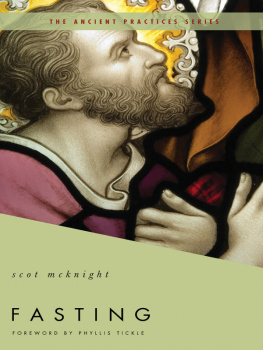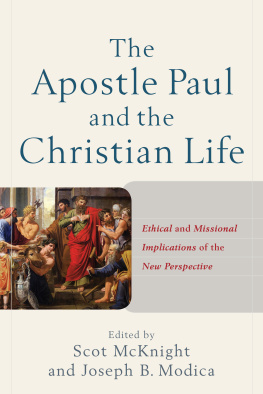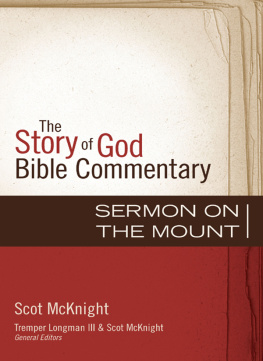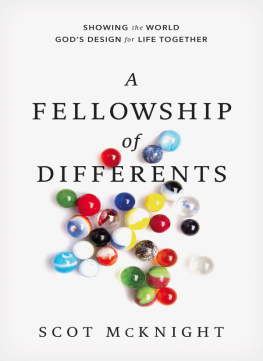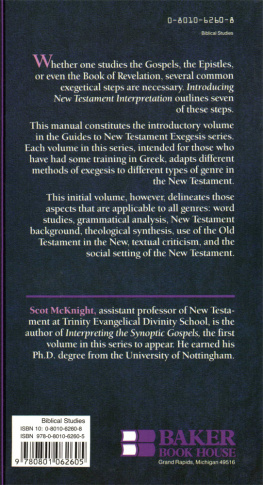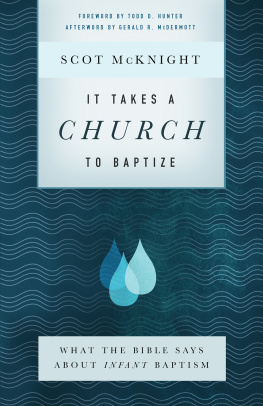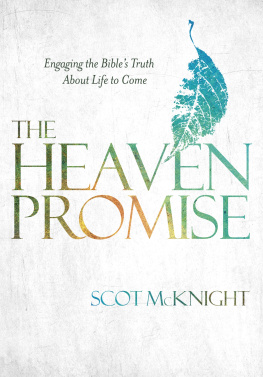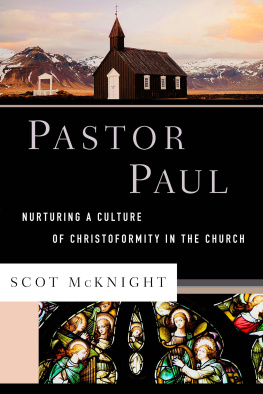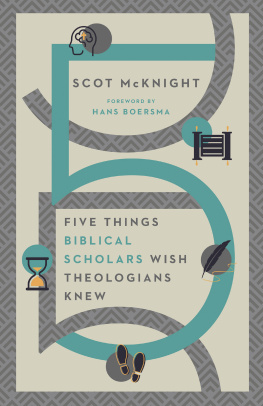Scot McKnight - Fasting: The Ancient Practices
Here you can read online Scot McKnight - Fasting: The Ancient Practices full text of the book (entire story) in english for free. Download pdf and epub, get meaning, cover and reviews about this ebook. year: 0, genre: Religion. Description of the work, (preface) as well as reviews are available. Best literature library LitArk.com created for fans of good reading and offers a wide selection of genres:
Romance novel
Science fiction
Adventure
Detective
Science
History
Home and family
Prose
Art
Politics
Computer
Non-fiction
Religion
Business
Children
Humor
Choose a favorite category and find really read worthwhile books. Enjoy immersion in the world of imagination, feel the emotions of the characters or learn something new for yourself, make an fascinating discovery.
- Book:Fasting: The Ancient Practices
- Author:
- Genre:
- Year:0
- Rating:3 / 5
- Favourites:Add to favourites
- Your mark:
- 60
- 1
- 2
- 3
- 4
- 5
Fasting: The Ancient Practices: summary, description and annotation
We offer to read an annotation, description, summary or preface (depends on what the author of the book "Fasting: The Ancient Practices" wrote himself). If you haven't found the necessary information about the book — write in the comments, we will try to find it.
Fasting: The Ancient Practices — read online for free the complete book (whole text) full work
Below is the text of the book, divided by pages. System saving the place of the last page read, allows you to conveniently read the book "Fasting: The Ancient Practices" online for free, without having to search again every time where you left off. Put a bookmark, and you can go to the page where you finished reading at any time.
Font size:
Interval:
Bookmark:

Words of Praise for
FASTING
What a wise and challenging exploration of one of the most misunderstood practices of the Christian life: fasting. In short, Scot McKnight explores how fasting can be a tool of ongoing conversion. I cant wait to gather a group of folks in my church, read this book together, and, with Scot McKnights guidance, discern how we might be called not only to read about but alsomore riskily!to practice fasting.
Lauren Winner, Duke Divinity School,
author of Girl Meets God and Mudhouse Sabbath
A very helpful work that offers a radically reorienting perspective on the Christian discipline of fasting.
Ruth Haley Barton, cofounder and president of
Transforming Center, author of Sacred Rhythms:
Arranging Our Lives for Spiritual Transformation
FASTING
scot mcknight
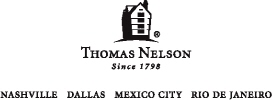
2009 by Scot McKnight
All rights reserved. No portion of this book may be reproduced, stored in a retrieval system, or transmitted in any form or by any meanselectronic, mechanical, photocopy, recording, scanning, or otherexcept for brief quotations in critical reviews or articles, without the prior written permission of the publisher.
Published in Nashville, Tennessee, by Thomas Nelson. Thomas Nelson is a registered trademark of Thomas Nelson, Inc.
Published in association with Greg Daniel, Daniel Literary Group, 1701 Kingsbury Dr., Suite 100, Nashville, TN 37215. www.danielliterarygroup.com.
Page Design by Casey Hooper.
Thomas Nelson, Inc., titles may be purchased in bulk for educational, business, fund-raising, or sales promotional use. For information, please e-mail SpecialMarkets@ThomasNelson.com.
All Scripture quotations are taken from the NEW REVISED STANDARD VERSION of the Bible. 1989 by the Division of Christian Education of the National Council of the Churches of Christ in the U.S.A. All rights reserved.
ISBN 978-0-8499-4605-9 (trade paper)
Library of Congress Cataloging-in-Publication Data
McKnight, Scot.
Fasting : fasting as body talk in the Christian tradition / Scot McKnight.
p. cm.
Includes bibliographical references and index.
ISBN 978-0-8499-0108-9 (hardcover : alk. paper)
1. FastingReligious aspectsChristianity. 2. Body, HumanReligious aspectsChristianity. I. Title.
BV5055.M35 2008
248.4'7dc22
2008037270
Printed in the United States of America
10 11 12 13 14 RRD 6 5 4 3 2 1
For Rob and Linda Merola
CONTENTS
WITHIN OUR CHRISTIAN TRADITION, THERE ARE SEVEN ancient practices, or disciplines, that come to us out of Judaism and directly through the teachings and observances of the early church. Each of the seven functions as a way of incorporating our faith into our daily, human, and very physical lives. Each is, in other words, a means by which we as believers can incarnate belief and perceive it in our bodies and physical consciousness as well as in our minds.
We, as Gods creatures on earth, live out our earthly lives within four dimensionsthose of height, depth, breadth, and time. Of the seven ancient practices, four govern or measure time. Fixed-hour prayer incorporates daily time into the faithful life of the believer. Sabbath keeping or observance regulates and consecrates weekly time. The business of following the seasons of the liturgical year, both in our public worship and our private devotion, synchronizes the rhythms of the year for every member in the larger church universal. The making of pilgrimage, the fourth of the practices that sanctify time, is the only one of the four that has suffered much change or adjustment over the centuries. In Western Christianity, it is no longer generally seen as that once-in-a-lifetime trip, bought at great expense of time and energy for the sake of taking ones whole self to sacred or hallowed space. Rather, it is more commonly seen as a form of retreat to be entered into at less expense or difficulty than true pilgrimage, and certainly, more frequently.
The other three ancient practices have more to do with the business of living within space. They are concerned with the physical body and its awareness of itself. Of these three, fasting is far and away the most misunderstood, maligned, and misused. Tithing costs one a part of the product of ones work and a part of the substance that one has for supporting the physical and emotional needs of the body. The sacred meal, by any name, be it Eucharist or mass or Lords Supper or Communion, brings the divine directly into the body. But fasting... ah, fasting. Now, theres a different matter. Fasting hurts. Fasting can become exaggerated into an excessive and neurotic indulgence. Fasting, carried too far, can harm the body... and fasting, submitted to theological and scriptural scrutiny, asserts that soul and body are, and that neither is without the other. For many Christians, that itself is a disturbing precept better left unexplored.
So far as I know, no one in recent (or even not-so-recent) years has taken on fasting with the deftness and clarity that theologian Scot McKnight exercises here. McKnights own Christian faith shows on every page of this book, as does his vast scholarship. But what shows most, I think, is his pastoral concern that the church come again to a time when we understand and embrace the spiritual benefits and religious necessity of fastingto a time when we can accept it not just as an antique exercise once practiced by our forebears, but as one our Lord himself both followed and taught as necessary at certain times.
This is, in sum, not a book for the cowardly. Instead, it is a book for the courageous Christian who seeks to more fully occupy all the member parts of his or her own life, and to do so for the expressed purposes of better knowing and serving God.
Phyllis Tickle
General Editor
Ancient Practices Series
INTRODUCTION:
A MONTAGE OF CHRISTIAN VOICES ON FASTING
FASTING IS A PERSONS WHOLE-BODY, NATURAL RESPONSE to lifes sacred moments. Because fasting is natural, it is found in all the great world religions and philosophies. Unfortunately, fasting is the most misunderstood of the Christian spiritual disciplines. We will discuss the reasons for this opening salvo later, but for now Id like to offer a montage, a splicing together of statements about fasting from the days of King David until now.
KING DAVID: FASTING AS A WHOLEBODY ACT
In the middle of the Old Testament, what Jews call the Tanakh or the Hebrew Bible, is a collection of Israels favorite prayers. We learn so many things in the Psalms, not the least of which is that prayer has a bundle of natural companionslike prayer and kneeling, prayer and pleading, prayer and pondering, prayer and struggling, and prayer and praising.
One of prayers companions is fasting. Here are four lines from the middle of the thirty-fifth psalm. David tells us all that when his enemies were sick, he didnt gloat. Instead, he got to work praying for them:
But as for me, when they were sick,
I wore sackcloth;
I afflicted myself with fasting.
I prayed with head bowed on my bosom,
as though I grieved for a friend or a brother;
I went about as one who laments for a mother,
bowed down and in mourning. (Ps. 35:1314, emphasis added)
In this psalm, David is not being overly dramatic or trying to get us to see how righteous he was or how wicked his opponents were. His prayer was accompanied by fasting. For David, as for everyone in the Bible, prayer was
Next pageFont size:
Interval:
Bookmark:
Similar books «Fasting: The Ancient Practices»
Look at similar books to Fasting: The Ancient Practices. We have selected literature similar in name and meaning in the hope of providing readers with more options to find new, interesting, not yet read works.
Discussion, reviews of the book Fasting: The Ancient Practices and just readers' own opinions. Leave your comments, write what you think about the work, its meaning or the main characters. Specify what exactly you liked and what you didn't like, and why you think so.

